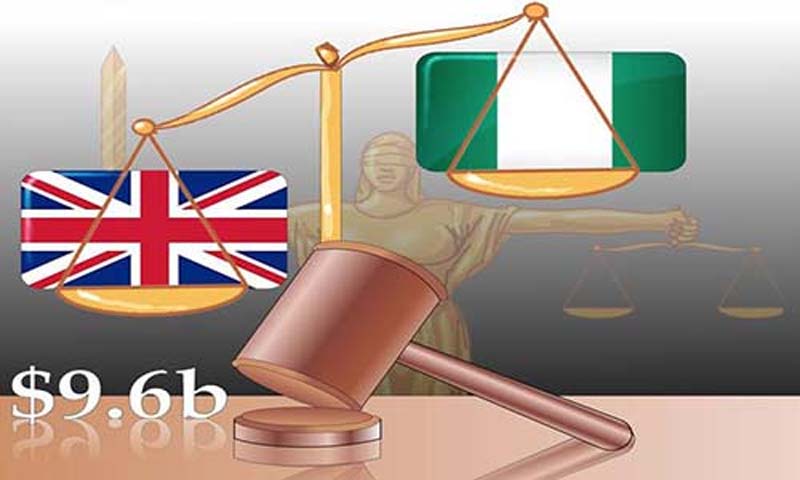Understandably, the news on Monday that Nigeria won a case in London was greeted with jubilation by some members of the public. The country has saved itself from paying over $11 billion to a British Virgin Islands-based company, Process & Industrial Development (P&ID) Limited.
On the contrary, cancelling the project came with huge consequences. It was a legal battle involving corruption by Nigerian officials, an international company accusing Nigeria of breach of contract and lack of due diligence in government contracts. Whether the case was won or lost, the case has exposed Nigeria’s governing culture on the international stage, and it has impacted the country’s revenue and global reputation.
It all started in 2010 when a 20-year gas and supply processing agreement was signed between P&ID and the Nigerian government to build a gas processing facility in Cross River State. The project was meant to reduce gas flaring in Nigeria and commercialise the gas industry, including producing electricity for ordinary Nigerians.
The contract stipulated that the Nigerian government was to supply natural gas via a pipeline to the P&ID plant in Calabar. The company would process the gas and return a portion as fuel for the country’s power grid while keeping the rest as a byproduct for sale. Specifically, Nigeria would receive 85 per cent of the non-associated gas for electrical generation and industrialisation at no cost. Also, Nigeria will have a 10 per cent stake in the production plant.
- We‘ve keen interest in Kogi, Bayelsa, Imo gov’ship polls — British High Commissioner
- NESG unveils centre to link legislature with economic development
Unfortunately, the government did not build a pipeline or secure a gas supply as stipulated in the agreement, leading P&ID to seek legal redress. In 2012, they initiated an arbitration proceeding in London, claiming damages for the failed project and alleging breach of contract.
In 2015, Goodluck Jonathan agreed to an out-of-court settlement of $850m. However, in 2017, the company went back to court after realising that the Buhari government was not planning to settle. The London Court ordered Nigeria to pay P&ID damages, amounting to around $11 billion. The Buhari government responded by alleging that the contract was awarded corruptly and that P&ID had no intention or the capacity to fulfil the project.
Fast forward to today, Nigeria has won the case. But we forget to ask, where is the public good that was meant to be delivered? What has the ordinary person won?
Surprisingly, people are not speaking about the abandoned project meant to benefit businesses and individuals; rather, they are generally celebrating because certain investors have been made worse off, similar to their living standards.
If P&ID had taken off and the project had succeeded over the last thirteen years, millions of Nigerians would not be in the dark today without reliable electricity. Let’s not forget that more than 60 per cent of the people in Nigeria have no reliable electricity supply.
Fact have shown that the lack of consistent electricity is one of the main infrastructural challenges of conducting business in the country, as it reduces productivity and efficiency of business operations. It has restrained business growth in Nigeria over the years. So, having a project that will supply constant electricity would have changed the trajectory of the country’s economy.
Additionally, the country would have added another project that reduces gas flaring, a pressing issue globally.
According to the National Oil Spill Detection and Response Agency, Nigeria recorded a loss of over $22.9 billion to gas flaring from 2011 to 2021. Similarly, the Nigerian Gas Flare Commercialisation Programme reported that Nigeria had lost potential revenue of over $1.1 billion in 2016 due to natural gas flaring.
The gas flared in 2016 alone, 275 billion standard cubic feet, represented a missed opportunity to generate electricity to power millions of households during that period. On the global stage, Nigeria is blamed for flaring more gas than any other country except Russia despite having one of the world’s lowest per capita electricity generation rates. Meaning we need to use the gas for electricity instead of burning it.
According to the Energy Information Administration assessment, about 10 per cent of the world’s gas flares are in Nigeria, to the extent of being visible from space.
Given the far-reaching consequences, it is surprising how this happened. Aside from solicitors’ fees, the litigation has cost Nigeria several billions of dollars in potential revenue over the last 13 years. Furthermore, the case has exposed corruption and contractual negligence, sparking reputational risk in governance in Nigeria.
Businesswise, the litigation will make the country less commercially attractive internationally due to a lack of due diligence in awarding contracts and the manner of refusing to enforce contracts.
If the project had succeeded, the expected benefits would have been enormous, from electricity generation to infrastructure, revenue generation, and exporting natural gas and electricity. Who knows, maybe the project might have solved Nigeria’s foreign exchange crisis. Of course, there are existing projects of gas processing companies in the country, but I struggle to see one that agreed to supply 85 per cent of the non-associated gas for electrical generation and industrialisation at no cost to the country while keeping a 10 per cent stake in the plant.
A strong suggestion would be for the government to consider awarding similar contracts to companies that can start operation as soon as possible.

 Join Daily Trust WhatsApp Community For Quick Access To News and Happenings Around You.
Join Daily Trust WhatsApp Community For Quick Access To News and Happenings Around You.


